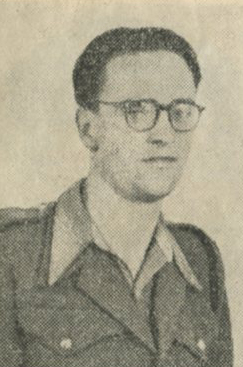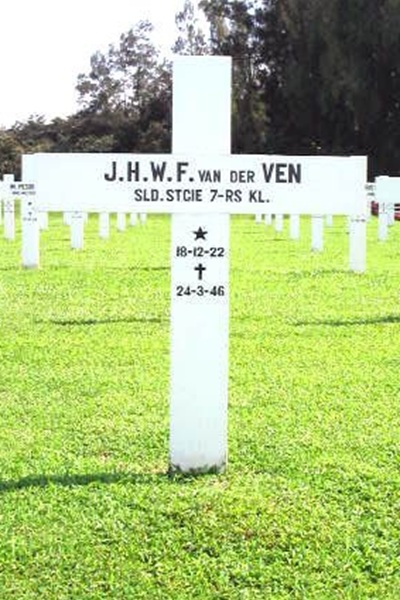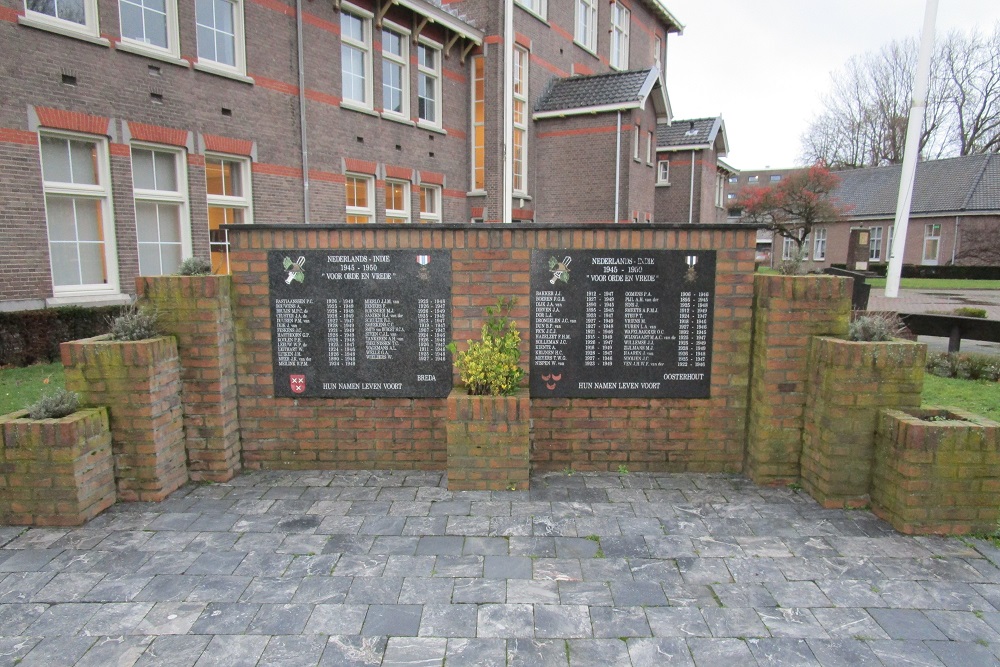Ven, van der, Jacobus Hendrik Wilhelmus Franciscus (Sjaak)
- Date of birth:
- December 18th, 1922 (Oosterhout/North Brabant, Netherlands)
- Date of death:
- March 24th, 1946 (Pangkalpinang/Bangka, Dutch Indies)
- Buried on:
- Dutch War Cemetery Pandu
Grave: II/245. - Nationality:
- Dutch
Biography
Sld.StCie 7-R.S.
Sjaak was born on 18 December 1922 in Oosterhout and lived in Breda. Immediately after the end of World War II in Europe, he volunteered for military service with the Royal Netherlands Army in Vught, where he was assigned as a soldier to the staff company of the 7th Battalion of the Stoottroepen (Assault Troops).
Two days after the Japanese surrender on 15 August 1945, Soekarno and Mohammed Hatta declared Indonesia's independence. When, shortly afterwards, the British and Dutch appear to be preparing to restore the aged colonial authority, the period of the Bersiap (‘be prepared’) begins, during which foreigners and European and Indonesian Dutch citizens declared enemies become victims of violence and persecution. To fulfil his military service, Sjaak was sent to the archipelago to help restore order and security.
On 20 September 1945, he left for Wokingham in England, where Dutch soldiers received their weapons. In mid-October, Sjaak boarded the Alcantara bound for the East.
However, British Admiral Lord Mountbatten, commander-in-chief of the Allied South East Asia Command (SEAC), had issued a landing ban for Dutch troops on Java and Sumatra with effect from 2 November 1945, so the Alcantara has to divert to Malacca on the Malay coast, where they arrive at Camp Dusun Tua on 11 November 1945. With the landing ban, the British want to prevent the conflict in the archipelago from escalating into a large-scale war in which their troops stationed there would be drawn in. The island of Bangka off the coast of Sumatra was still outside the British blockade, allowing Sjaak's unit to land there on 10 February 1946.
In the months that followed, Dutch troops encountered fierce resistance there, but eventually managed to secure the island against revolutionary cells. Against this backdrop, Sjaak was killed in an accident on Bangka on 24 March 1946. He was 23 years old and found his final resting place in Bandung at the Dutch military cemetery Pandu.
Do you have more information about this person? Inform us!




